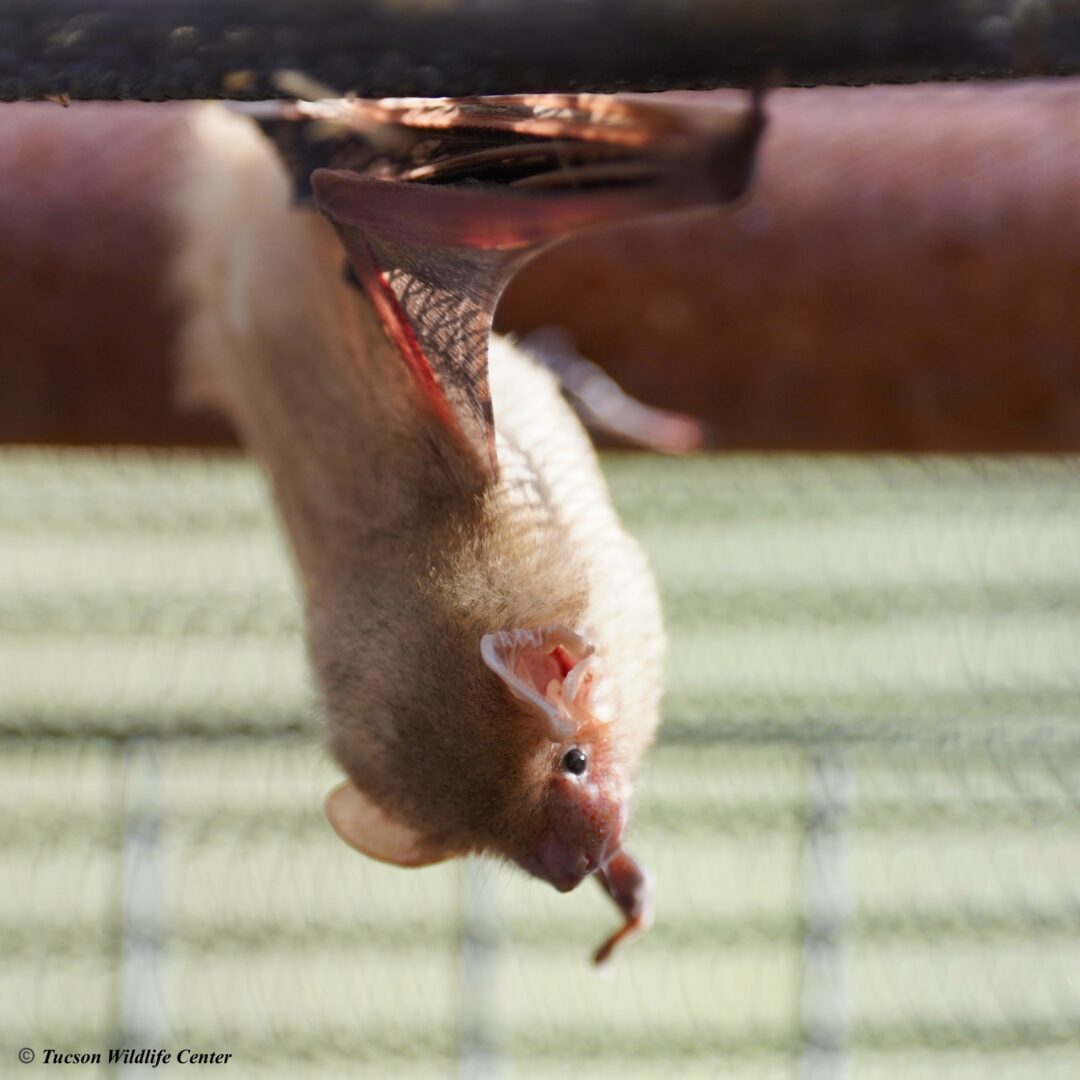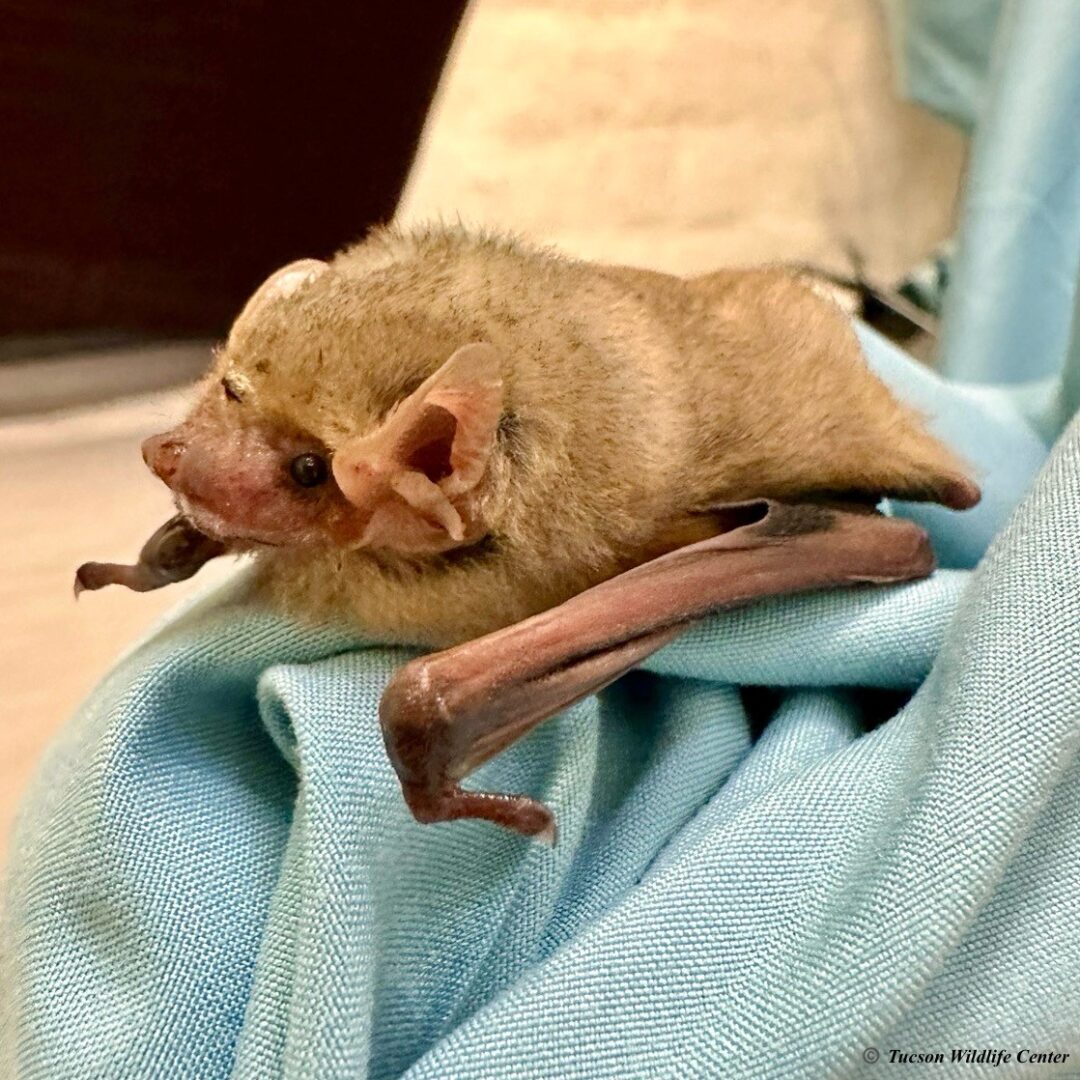
Western Yellow Bat
With Halloween right around the corner, spooky decorations are popping up all over Tucson, and bats are among the most common. But despite their spooky reputation, real bats are far from frightening. They play a vital role in our ecosystem by controlling insect populations and pollinating plants.
At Tucson Wildlife Center, our wildlife care team works diligently to rehabilitate injured bats for their return to the wild—like this recent patient, the Western yellow bat. Found on the ground, unable to fly, this bat was brought to TWC where a radiograph confirmed a fractured radius—a bone in the bat’s forelimb that helps provide structural support to the wing. We are happy to report that our staff veterinarian successfully stabilized the fractured bone by inserting a pin.
Arizona is home to 28 species of bats, making it one of the most diverse states for bats in the U.S. The state’s varied habitats, from deserts to forests, provide suitable environments for these flying mammals—including the Western yellow bat. With its soft yellowish-orange fur and small, delicate features, this species roosts in the dead fronds of palm trees during the day. At night, their broad, relatively short wings help them maneuver through trees and other vegetation while foraging for small flying insects. If you would like to help patients like this Western yellow bat, click this link to donate
Another way you can contribute is to visit our “wish list” on Amazon by clicking on the Amazon Wish List button below. We appreciate it, as will all the wild animals in our care!

Don’t forget about the Jim Click for Millions raffle!
2024 Jim Click Millions for Tucson Raffle, for a chance to win a Jeep Wrangler Rubicon, 4xe Plug-In Hybrid.

Show your support with a minimum $25 donation and we’ll send you a “KEEP TUCSON WILD” sticker. Click the bumper sticker to donate.

